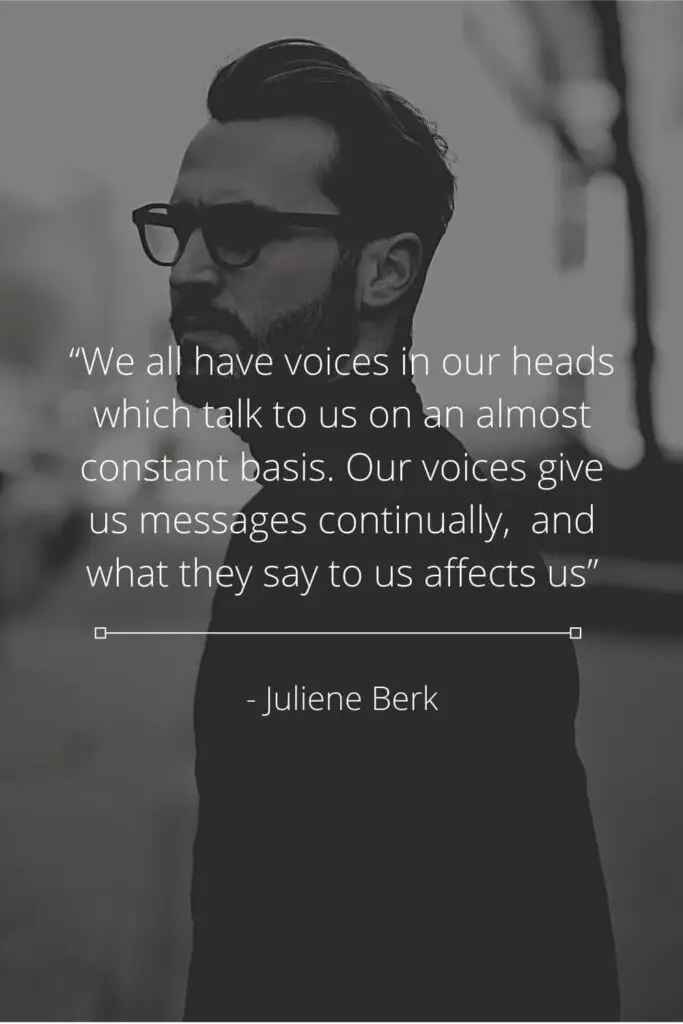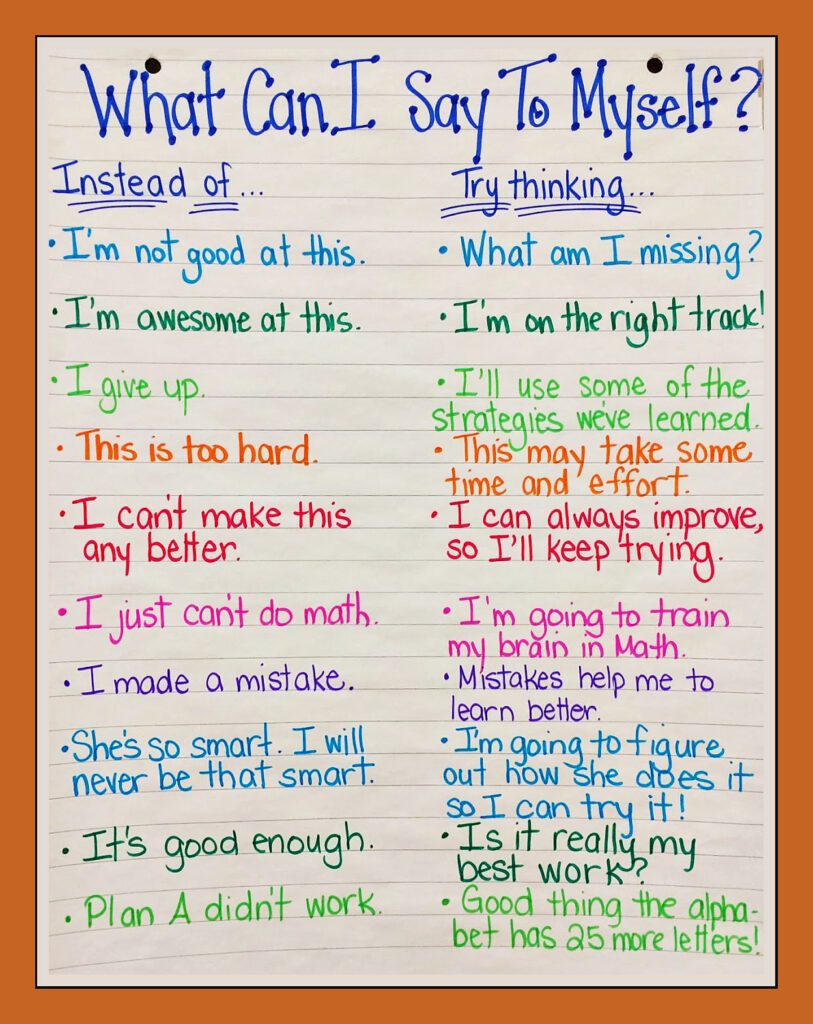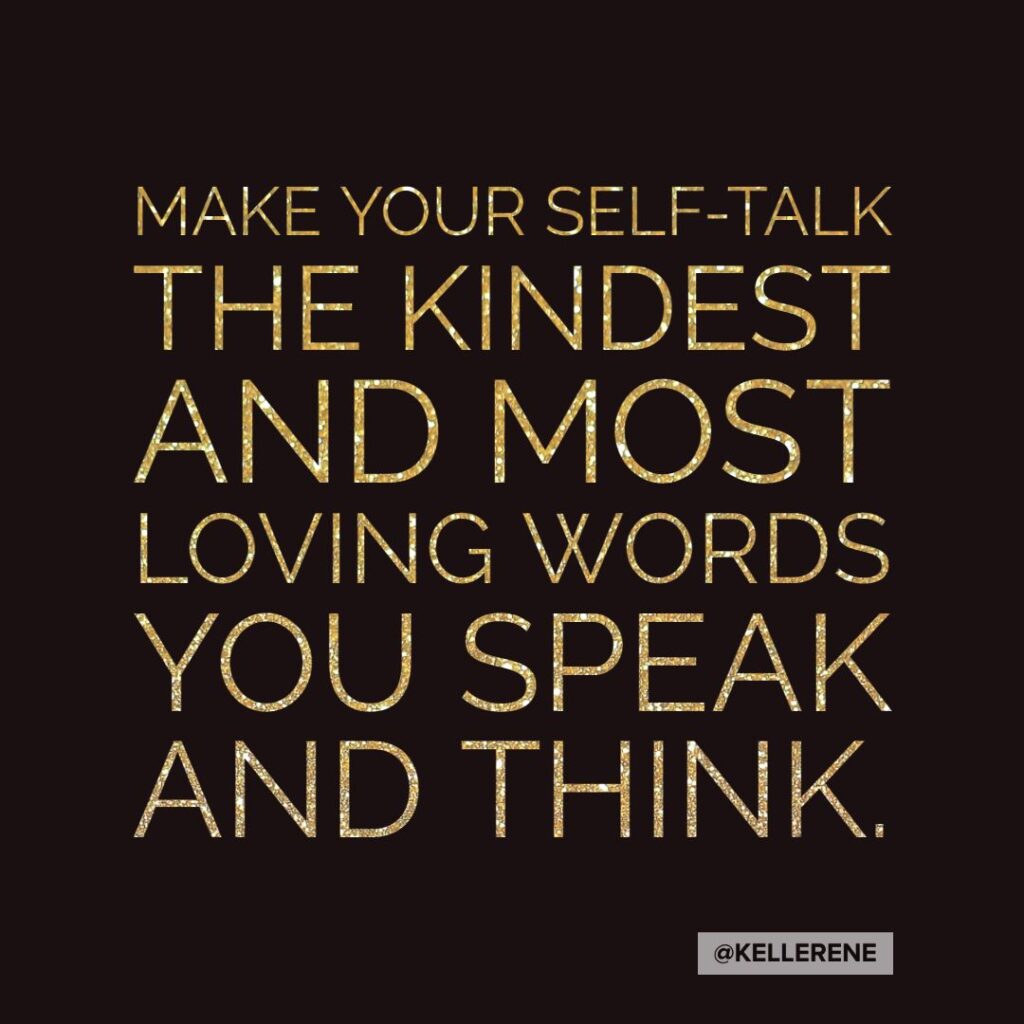Words have immense power – they help communicate your feelings, emotions, thoughts from one person to another – across all age groups and beings. Words represent the intentions of the speaker, they either form or break bonds with people and with other living beings, they ignite all sorts of emotions – be it of love, care, pain, encouragement, discouragement, anger, calmness, or peace.
But do words have a self-impact? When I describe myself, talk about my identity – the person I am, poke fun on my physicality or my attitude, my problems or my behaviour at times or the things I tell myself? The answer is – a big yes! We take ourselves for granted when it comes to describing ourselves or we say things about ourselves unconsciously that it gets embedded in our unconscious leading to lowering our self-worth –

Some simple examples I would want to share – these could be positive self-talk or negative self-talk –
- “Oh god! I look horrible in this picture”
- “I look ugly/fat! I must cut down on my weight.”
- “I am bad at remembering things”
- “I have a hard time learning driving…just not my type.”
Let me share my journey with words I have had over the years. As a writer/author – I have a different connection with words. For me, words are beautiful pieces that form stories! My love for words grew when I began writing diaries – journalling each day, right from school to college. Being from a conservative family and everyone busy with their lives and work, I never had the chance of conveying my ideas, thoughts, or emotions with anybody – even close friends, so I used to write them, in a way trying to be my own friend. These words became strength to me, I was writing about myself, my days, my learnings, my situations – all for myself and that built my own small happy world for me.
As years passed and I grew up to earn a living, I let my passion for writing grow and this took the form of blogging. As a writer, I take great pride in my blogs and writings. I write from the heart – all my stories and lessons come from my own observations and experiences that I have gone through in life and want to share to the readers so that they can learn from my experiences, read my stories, and feel good about life as a whole. When I am low, when I need support and when I need to tell myself that I must come out of my negativity or tensions, I prefer to write – I write blogs on those specific topics that hit me the most because I want to tell myself through my writings on all the right things to do, right lessons to learn from the not-so-good experiences and get ahead in life. All my blogs so far have been lessons for self, because when I write them for my audience, I write for myself too.
One must never underestimate the power of words – the positive or the negative – the impact it has is as powerful as the way it is expressed. Ever since I have certified in NLP and psychology, read most of the self-help books, my biggest learning has been how we use words for ourselves, because the relationship with words is a medium not only for creating our self-image but also for self-growth and development – in terms of describing ourselves, in terms of telling our stories to the world, in building our own identity, be it as our own champion/cheerleader or a critic. I understand all of us are not accustomed to accept compliments (from others) or self-appreciate when it comes to ourselves because we always undermine ourselves but it is important, we begin to feel good about ourselves, by the words people use on us and the words, we choose to speak to ourselves as they have a huge impact on our thinking, behaviour, actions, attitude, personality and identity.
This is as simple as –
“I am beautiful”
“I am tired and fed up”
“I can’t do this”
“I am not worthy enough”
“I don’t feel good”
“There is so much work to handle, beyond my capacity”
“I look so bad in this picture… I look fat and ugly.”
We fail to realise how these words are impacting our subconscious mind – that section of the mind that takes its learnings from the conscious mind and adds up to make the true ‘You.’ We reason, question, analyse everything that the conscious mind observes. Based on this analysis and experience, the impact builds on our subconscious mind – be it anything good or bad.

Let me share some real-life examples I am aware on self-talks which have an impact on our subconscious mind or our lives by the meanings they imply –
| Instances | Impact on mind, impact on self |
| “I am not good at handling finances” | I am not worthy of being wealthy or taking care of my finances. |
| “I cannot comprehend instances quickly” | I am slow |
| “I always end up reaching late for meetings” | Lacks time sense, never punctual. |
| “If they are not happy, it is my fault” | I am responsible for their happiness/sadness |
| “This work is killing me, I cannot handle, I will quit” | I am not capable of handling challenges, I prefer ease |
The major reason for our negative self-talk is our limiting beliefs. A limiting belief is a state of mind or belief about yourself that restricts you in some way – a negative experience often puts this belief in your mind that you are not enough or not capable of doing that thing – thereby restricting your chances of fresh attempts and concluding that you are not capable enough. For example – Having a miscarriage impacts mental health immensely. This negative experience could put you in a state that could mean the end of the world. The real reasons could be that your body is not ready yet or the timing is not right but our perceptions always see this as the ‘end of the world’ scenario, thereby creating a limiting belief that a miscarriage means I am not worthy of getting pregnant. This puts you in a state of pause wherein the next time you attempt or make a try, your limiting belief acts as a hurdle reminding you of the miscarriage you had earlier and how another attempt may have the same result – this could also allow you to reduce your next chances of attempting.
We must understand that negative experiences do not have to result in negative self-talk. All experiences only make us better not worse – it is how each one takes it. For every experience, the message we give our brains impacts our behaviour, our actions and then becomes our identity. It could either limit your true potential and reduce your chances of the next best level of attempt or push you hard enough that you give your 200% for the next attempt that you outgrow your limits. As simple as the exams you take – a competitive one for example. You gave your best in first attempt but you did not get through. The reasons could be different but your mind puts you in a limiting belief space that you are a loser, you are not worthy of succeeding. This hurdle of negative self-talk will diminish your next attempts and eventually make you quit.
We must learn to stop creating a huge bubble of such negative talks in our head to an extent that they do not become our identity. In this case of exams, failing does not make you a loser. We must learn to question the right sections and then rebuild ourselves for the next big best attempt that could eventually put you in the winning stage. Sharing the steps below to help you put a pause to the overthinking bubble we create for ourselves which will help us think rationally.

Quick steps on rebuilding our mindset for positive self-talks –
- Use of affirmations – These are used to let ourselves feel good about ourselves, create our identity in positive ways.
- Questioning the right motives or in the right manner can help you reframe your mindset and make a fresh start.
- Making a quick switch from dwelling on negative experiences to making ourselves busy with creating better experiences can help us make a good shift and put us in a learning state.
Each of these are very good tools to develop ourselves as our minds can be easily reframed if we knew how to do these in the right way.

The famous Bollywood actor, Shahrukh Khan says – “When I begin my day every morning, I stand in front of the mirror and tell myself – ‘I am the best’. This puts me in a ready state to do my best each day and build myself well. What I tell myself is most important to me”.
Let the words you use for self-talk be positive ones because what you tell yourself , shows in your behaviour and actions and later becomes your identity😊.
Do not underestimate the power of words for self-talk!





